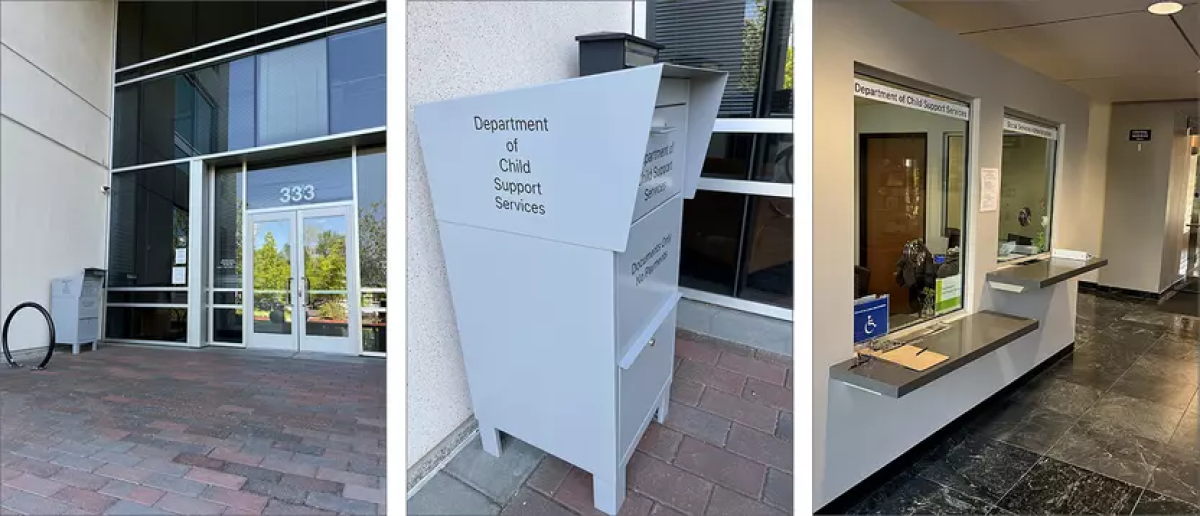Child Support
Logging Like a Boss
Keep the Receipts: The Secret Weapon of Parenting Logs in Court

Parenting logs can make or break a custody case. This guide shows how to document parenting time, communication, and co-parenting behavior in a way that holds up in court — with clear examples, common mistakes to avoid, and tips for building a reliable, child-focused record.
When it comes to co-parenting, memories fade and stories twist — but your notes don’t. This article breaks down exactly how to track your parenting time, conversations, and decisions, so when it’s your word against your ex’s, you’ve got the receipts that actually count.
What Good Documentation Looks Like
Let’s talk quality over quantity. Because if there’s one thing that will make a judge’s eyes glaze over faster than a toddler’s after a full day at Disneyland, it’s pages and pages of vague, emotional, or repetitive notes.
Good documentation isn’t just about writing everything down — it’s about writing it down well. That means clear, factual, and focused on what the court actually needs to see: your child’s needs, your involvement, and any patterns of missed responsibilities or conflict.
Keep It Factual, Not Emotional
Your goal isn’t to sound mad. It’s to sound credible.
Bad:
“He showed up late AGAIN because he doesn’t care and probably stayed out drinking the night before. Typical.”
Better:
“July 21 – Pick-up scheduled for 10:00 AM. Ex arrived at 11:20. No prior notice. Child was anxious about missing beginning of birthday party.”
This version shows what happened, how the child was affected, and that you stayed calm. No guesswork, no insults — just facts.
Timestamp Everything
Dates and times are the backbone of any strong custody case. Use them like breadcrumbs.
- Start every log entry with the date
- Include times for exchanges, messages, incidents
- Note delays in response or missed communications
Judges love timelines. When it’s your word against your ex’s, a timestamped log helps your story stick.
Be Consistent
You don’t need to log every single thing. But once you start documenting something — like late pick-ups, missed payments, or lack of communication — keep going. Consistency builds credibility.
If you only write things down when you're mad, it shows. If you keep a steady, fair record — even noting when things go smoothly — you look mature, reasonable, and focused on the child.
Bonus: Judges do notice when a parent gives credit where credit is due. If the other parent does something helpful and you acknowledge it, it shows you're not just building a case — you're being honest.
Don’t Overdo It
Yes, you can document too much. If your journal starts looking like a full-time surveillance operation, it may backfire. Judges don’t want a minute-by-minute log of how your ex packed the lunchbox wrong or sent the kid in mismatched socks.
Stick to big-picture patterns and moments that directly impact:
- The parenting schedule
- The child’s health, safety, or emotional well-being
- Co-parenting cooperation (or lack thereof)
If it wouldn’t matter to a neutral third party, skip it.
Example: A Strong Entry vs. a Weak One
Weak Entry:
“Got into it again over who was supposed to take her to practice. He never remembers anything. I’m done reminding him.”
Strong Entry:
“August 3 – Practice at 5 PM. Per parenting schedule, Ex was responsible for transport. I confirmed via text at 3 PM, no reply. At 5:20, coach called to say child wasn’t picked up. I left work early to bring her. Notified Ex afterward.”
The second one tells the judge: You know the schedule. You confirmed responsibly. You took action when the child was affected. That’s gold.
At the end of the day, the goal isn’t to “win” through documentation. It’s to show — through a quiet, steady paper trail — that you are the reliable, child-centered parent the court can trust.
Pitfalls to Avoid (and What Can Backfire)
So, you’re logging parenting time, tracking texts, and filing receipts like you’re prepping for a Netflix custody thriller. Great. But before you go full “detective mode,” let’s hit pause.
Because yes, documenting your co-parenting life is smart — but how you do it matters just as much as what you’re tracking. Done wrong, your records can backfire, making you look petty, uncooperative, or even unstable.
Here’s how to stay on the right side of that line.
Pitfall #1: Over-Documenting Every Tiny Thing
If you’re writing down every text delay, snack choice, or time your ex parks crooked in the driveway, take a breath. Judges don’t have time — or patience — for 50 pages of petty complaints.
Don’t log:
- The other parent being five minutes late (unless it’s chronic)
- Clothing choices or haircuts that don’t harm the child
- Small annoyances that don’t affect parenting or safety
Do log:
- Missed exchanges, especially with no notice
- Repeated breakdowns in communication
- Major issues that affect the child’s well-being
When in doubt, ask: Would a neutral person care about this? If not, skip it.
Pitfall #2: Using Your Documentation as a Weapon
Documentation is a tool — not ammo. If you find yourself sending screenshots mid-argument or quoting your logbook at your ex like you're on an episode of Law & Order: Family Court Unit... you’ve lost the plot.
Why this backfires:
- It shows you’re more interested in “catching” your ex than co-parenting
- It escalates conflict
- It makes you look controlling, not protective
Keep your records for court, not for power plays. Judges want parents focused on their child, not their next gotcha moment.
Pitfall #3: Venting in Writing (Text, Email, or App)
Here’s a hard truth: everything you write can end up in court — even if it’s just a heated text at 11 PM when you're fried and fed up.
That “one little message” where you called your ex a lazy narcissist? It might be Exhibit A.
When in doubt:
- Re-read before sending
- Stick to facts, not feelings
- If you're mad, wait 30 minutes (or a night) before replying
Bonus rule: Never text what you wouldn’t want read out loud by a judge in front of your child. Because it might be.
Pitfall #4: Faking, Editing, or “Losing” Entries
It’s tempting. You log something, later regret it, and think: I’ll just tweak that date. Or delete it altogether.
Don’t.
Courts take credibility seriously. If your ex or their attorney catches even one altered record, it casts doubt on everything you’ve documented — even the honest stuff.
Tip: Use tools that automatically timestamp entries (like emails to yourself or calendar logs), so there’s no temptation — and no questions later.
Pitfall #5: Turning Your Kid Into the Messenger or Spy
It might feel innocent:
- “What did Dad say when you asked about the field trip money?”
- “Can you take a picture of your room at Mom’s house?”
But when kids become your eyes, ears, or emotional support system during a custody dispute, it puts way too much weight on their shoulders.
Judges see right through this — and they don’t like it.
Your job is to protect your kid’s peace. Your records should come from your own observations and communications, not your child’s whispers.
In short: document smart, not vindictively. The goal is to build a steady, reliable picture of your parenting — not to outscore your ex in a game of receipts.
How Judges and Attorneys Use Your Records
Let’s clear something up: judges aren’t flipping through your parenting journal like it’s bedtime reading. Most of them don’t even want to go deep unless they have to. But when custody cases get messy — and they usually do — your records can go from background noise to front-row evidence fast.
This is the moment your quiet stack of calendars, screenshots, and neutral notes pays off.
Here’s how that happens.
Your Logs Become Legal Evidence
That email you sent yourself after a missed drop-off? The screenshot of the “I’m not bringing her back” text? If things go to court, those become exhibits.
Attorneys love this kind of stuff because:
- It’s time-stamped
- It’s written in the moment
- It shows patterns, not just isolated events
And judges? They take notice when one parent brings a clean, calm set of facts — while the other brings nothing but complaints and vibes.
Pro tip: Keep everything organized by type (texts, parenting time, expenses, etc.), and bring printed and digital copies to any hearing or mediation.
What Judges Actually Look For
Judges don’t need 100 pages. They’re scanning for a few key things:
- Patterns of missed time (e.g., one parent not showing up consistently)
- Efforts to co-parent (showing you tried to communicate, compromise, or adjust plans when needed)
- Child-focused behavior (e.g., prioritizing health, school, therapy, or emotional well-being)
- Signs of conflict vs. cooperation (a parent who’s always hostile or refuses to respond can lose credibility fast)
Think of it like this: your records should help the judge answer one question —
“Which parent is doing what’s best for this kid on a regular basis?”
Attorneys Use Your Records to Build a Case
If you’re working with a lawyer, your documentation is a gold mine. It gives them leverage in:
- Settlement talks
- Mediation
- Emergency orders
- Full-blown custody trials
They can use your logs to:
- Build a timeline of events
- Show attempts to cooperate
- Highlight safety issues or lack of follow-through by the other parent
And if the other side shows up empty-handed? Even better. You’re not just telling your side — you’re proving it.
Declarations, Exhibits, and Testimony: How It Gets In
When your case goes to court, here’s how your documentation gets used:
- In a Declaration
Your attorney might ask you to write a sworn statement (or declaration) summarizing key events — backed up by your logs. - As Exhibits
You can attach supporting documents: texts, calendars, expense reports, screenshots — as long as they’re relevant and cleanly presented. - In Testimony
If you’re on the stand, you can refer to your records to explain what happened. (Just don’t read them word-for-word unless the judge says it’s okay.)
Tip: Judges respect brevity and relevance. Highlight what matters — don’t drown them in details.
Want to know what actually matters to the person deciding your case? Here’s what judges look for in custody disputes—from consistency and communication to how you show up in court.
Bottom line: organized, factual records make you look prepared and credible. You don’t need to be a legal expert — just a parent who shows up and keeps the receipts.
Emergency Situations and When to Act Immediately
Let’s be honest: most co-parenting issues don’t need flashing lights and a legal cavalry. But some do.
If your gut says something’s seriously off — if your child’s safety, health, or emotional well-being is in real danger — that’s when it’s time to stop documenting and start acting.
Documentation is a long game. Emergencies are the moment you pull the lever.
What Counts as an Emergency?
Not every missed pickup or petty fight is crisis-level. But the following are red flags:
- Physical abuse of the child or threats of harm
- Neglect, like not providing food, necessary medication, or supervision
- Emotional abuse, especially repeated intimidation, threats, or manipulation
- Unsafe environments (e.g., drug use around the child, dangerous people in the home)
- Kidnapping or refusal to return the child during custody exchanges
If you’re facing any of these, call the police, your lawyer, or your local child protective services immediately.
When Documentation Isn’t Enough
Sometimes, writing it all down isn’t enough. Courts want to see you’ve tried to get help.
That means:
- Reporting to the right authorities
- Getting emergency orders or protective orders
- Showing you’ve tried counseling, mediation, or supervised visits
Good documentation backs you up — but it doesn’t replace action.
Building a Routine: Making Documentation Part of Your Parenting Life
Let’s be real — between work, school pickups, co-parenting stress, and trying to remember if you already watched that episode of Bluey, the last thing you need is another thing to “stay on top of.”
But good documentation doesn’t have to be a full-time job. In fact, the best logs aren’t complicated — they’re consistent. And like any habit, once you build it into your parenting rhythm, it becomes second nature.
Here’s how to do it without burning out.
Set a Weekly “Log and Review” Ritual
Don’t try to document in real-time unless something major happens. Instead, set a 10-minute window each week — Sunday night, Friday morning, whatever works — to jot down anything worth saving:
- Missed visits or changes to the schedule
- Major communications or lack thereof
- Expenses you paid for
- Moments your child shared that may be relevant later (e.g., “Dad didn’t come to my game again.”)
Pro tip: Set a recurring calendar reminder. Make it as normal as brushing your teeth or hiding snacks from your kid.
Use the Tools You Already Have
You don’t need a new app or fancy software. For years I used a simple Google Doc that had a calendar template to keep track of my own custody. For now, work with what you’ve got:
- Notes app on your phone
- Google Docs with a shareable link for your lawyer
- Emails to yourself for timestamped entries
- Photos or screenshots stored in a dated folder
Make it easy on yourself, or you’ll stop doing it.
Keep It Focused on the Child
This isn’t about scorekeeping. It’s about creating a picture of your parenting, and how well your co-parent is supporting — or disrupting — your child’s routine and well-being.
Ask yourself each time:
“Would this help a judge understand my child’s day-to-day life?”
If the answer’s yes, note it. If it’s “they dressed her in clashing colors,” maybe not.
Don’t Make It a Weapon — or a Worry
Your documentation should support your parenting, not become the parenting. Don’t obsess, and definitely don’t start shaping your day around what you’ll write later.
Live first, log second.
Also: don’t let your co-parent know everything you’re tracking. That can create tension or — worse — lead to performance parenting or performative texts. Your goal is to co-parent, not corner.
Tie It to Something You’re Already Doing
Here’s a trick: anchor your documentation to an existing routine.
- After the Sunday custody exchange? Log for 5 minutes.
- When you’re reviewing your calendar on Friday? Add notes then.
- Sending your lawyer a monthly update? Collect your notes first.
Pairing it with something already in your schedule makes it easier to keep up.
The more you normalize documentation, the less scary it becomes for parents in crisis. You’re giving people structure in a season of chaos — and judges love structure.
Bottom line: You don’t need to log everything. But you do need to log something — consistently, calmly, and with your kid’s best interests in mind.
Conclusion: Showing Up, Staying Calm, and Having the Receipts
At the end of the day, documenting isn’t about “winning.” It’s about showing up, staying steady, and being the kind of parent a judge — and your kid — can count on.
Whether you’re locked in a court battle or just trying to stay ahead of future drama, good documentation gives you something powerful: clarity. Clarity in what really happened. Clarity when memory fades. Clarity when your ex swears up and down that they texted you — and you know they didn’t.
Think of it like parenting insurance. You hope you don’t need it. But when things get messy? You’ll be really glad you kept the receipts.
Because here’s the truth: court isn’t about who’s the flashiest, or who has the angriest email. It’s about who looks like the stable, consistent, child-focused adult in the room. And nothing shows that better than a calm, clean log of how you parent — day in and day out.
So start small. Use what you’ve got. Keep it honest, keep it steady, and don’t let documenting take over your life. Your future self — and maybe your lawyer — will thank you.
Frequently Asked Questions (FAQs)
Why is documenting parenting time so important in custody cases?
Courts want proof, not promises. Keeping clear records shows you’re consistent, reliable, and child-focused — all the things judges look for.
What’s the best way to document communication with my co-parent?
Use methods that create timestamps—texts, emails, or shared calendars work great. Avoid verbal-only agreements without any written backup.
Can I use apps or just handwritten notes?
Whatever works for you — digital logs, notes apps, photos, or even a simple notebook. The key is consistency and accuracy, not fancy tools.
How detailed should my parenting logs be?
Focus on what matters: parenting time, schedule changes, important conversations, and anything that affects your child’s well-being. Keep it clear and factual.
Should I share my documentation with my co-parent?
Not necessarily. Sharing can sometimes create tension or lead to performative behavior. Keep your records for your own protection and your lawyer’s eyes.
What if my co-parent lies or disputes my records?
Stay calm and keep collecting objective evidence—timestamps, witnesses, receipts. Courts value honest, steady documentation over accusations.
Can documentation replace legal advice?
No. Good records help your case but don’t replace a lawyer’s expertise. Always consult legal professionals if you’re headed to court.
You might also like these articles.
Legal Disclaimer:
This post is for informational purposes only and does not constitute legal advice. For personalized assistance, consult a licensed family law attorney or your local legal aid agency.




